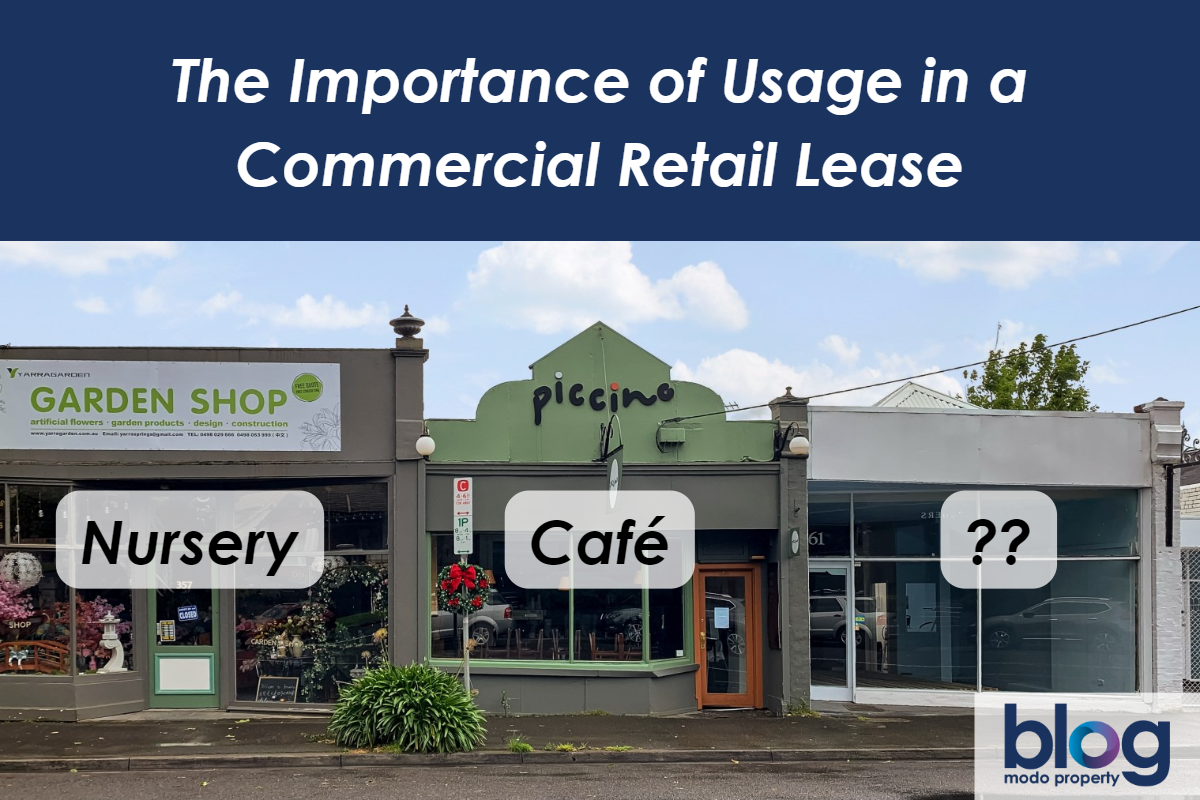The Importance of Usage in a Commercial Retail Lease
With real estate news seemingly focusing exclusively on rising interest rates and correlating market movements one wouldn’t think that tenancy usage would be a big deal, however, it’s quite a topical issue at the moment.
Like anyone with a mortgage right now, the financial squeeze is hitting small business owners (many of whom are still suffering COVID fallout) with many brokers expecting the number of business acquisitions to increase over 2023 and transition into more of a buyers market. As a company we are certainly having more tenants reaching ask to ask about assigning their leases or if we can find another tenant to replace them. Naturally many Landlords question how this is going to impact them.
Most of the time, it doesn’t assume the correct due diligence has been undertaken by the agent. Running adequate background checks, confirming a tenant’s capacity to meet lease terms, do they have enough cash, etc.
However, one needs to also consider the exact usage for the incoming tenant (“The Assignee”) and whether or not the owner would be at a disadvantage to accept them.
Case Study 1
There was a recent VCAT decision (Southern Restaurants Pty Ltd v United Petroleum Pty Ltd [2022] VCAT 666) in which a tenant couldn’t obtain a KFC franchise per the Lease agreement and sought the owner’s approval to operate an Oporto outlet instead. The argument is that both companies sold chicken, chips, and burgers. However, as control of the tenancy mix was critical to the Landlord and the Lease was specific regarding the usage, VCAT sided with the Landlord and the refusal to consent to an assignee was upheld.
“Restaurant and takeaway food outlet with associated car parks, drive-thru, loading bay and yard, including all ancillary retail and service offering developed by the Tenant. The preparation, retail sale and home delivery of (as eat in and takeaway) food items usually sold in a KFC outlet from time to time. The menu shall otherwise include all items at KFC items throughout Australia from time to time, including special promotion items.’
Case Study 2
A massage parlour sets up in Brunswick offering Thai massage but residents have reported that ‘working girls’ have been operating at all hours of the night with clients being let in through the rear entrance of the building. Usage for a brothel is permitted in the zoning with a permit, however, the lease specifies that the usage is for ‘Thai massage (or similar style) only’. If only stated as ‘retail usage’ the tenant would be permitted to continue operating on the provision that they obtained a permit from the local council. The owner has defaulted the tenant and the owners’ corporation has set up additional cameras in common areas.
What to watch out for and why specifying usage is important!
- Business sales with the intention of the purchaser buying to obtain an Australian Visa.
- Setting up massage parlours that covertly operate at unlicensed brothels.
- Having one person set up a business but assigning the lease to someone who may not have been approved as an operator.
- Variations that may impact other tenancies within a complex without exclusivity clauses (such as a business centre).
- Business variations that may impact an owner’s insurance policy.



